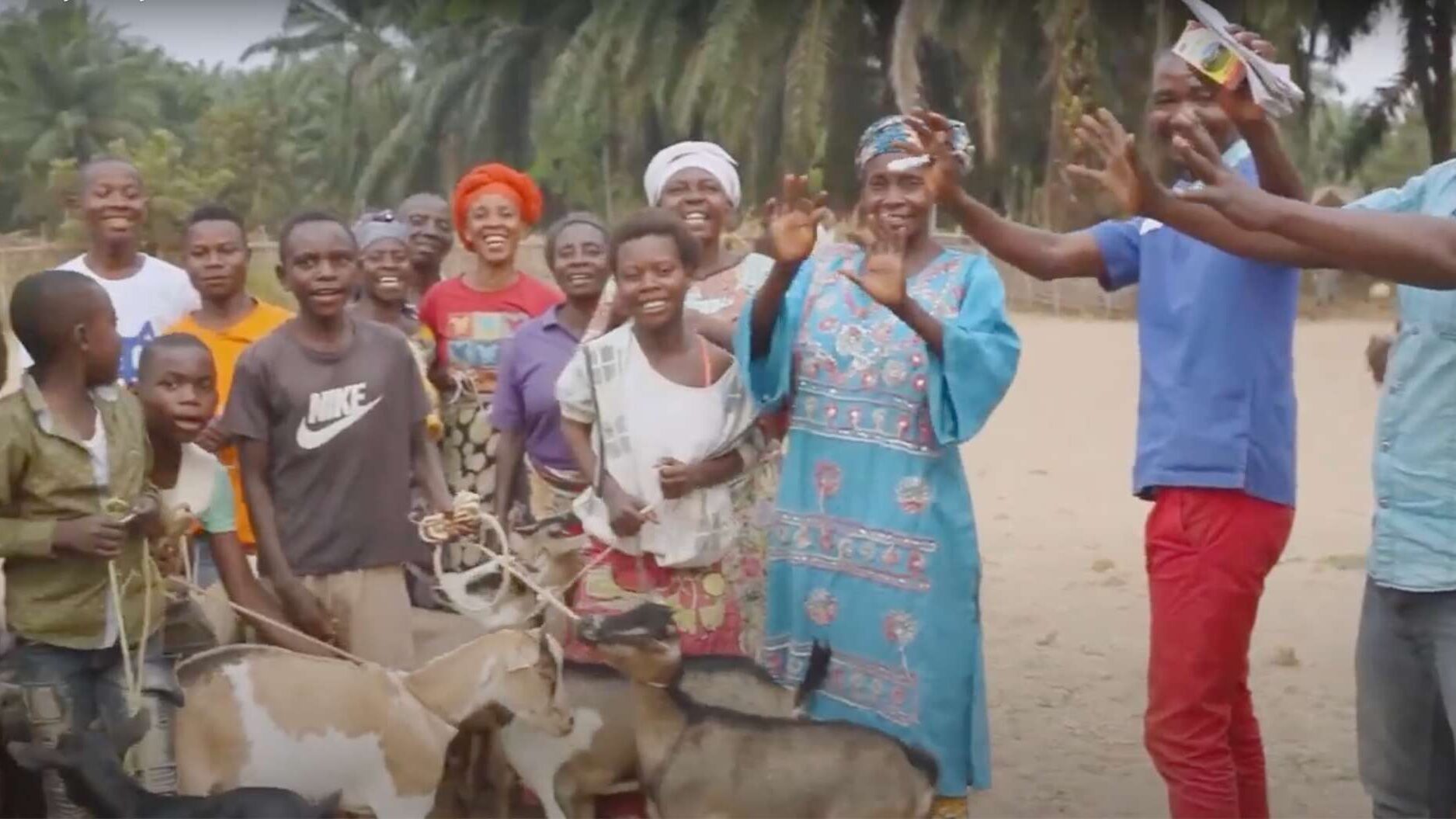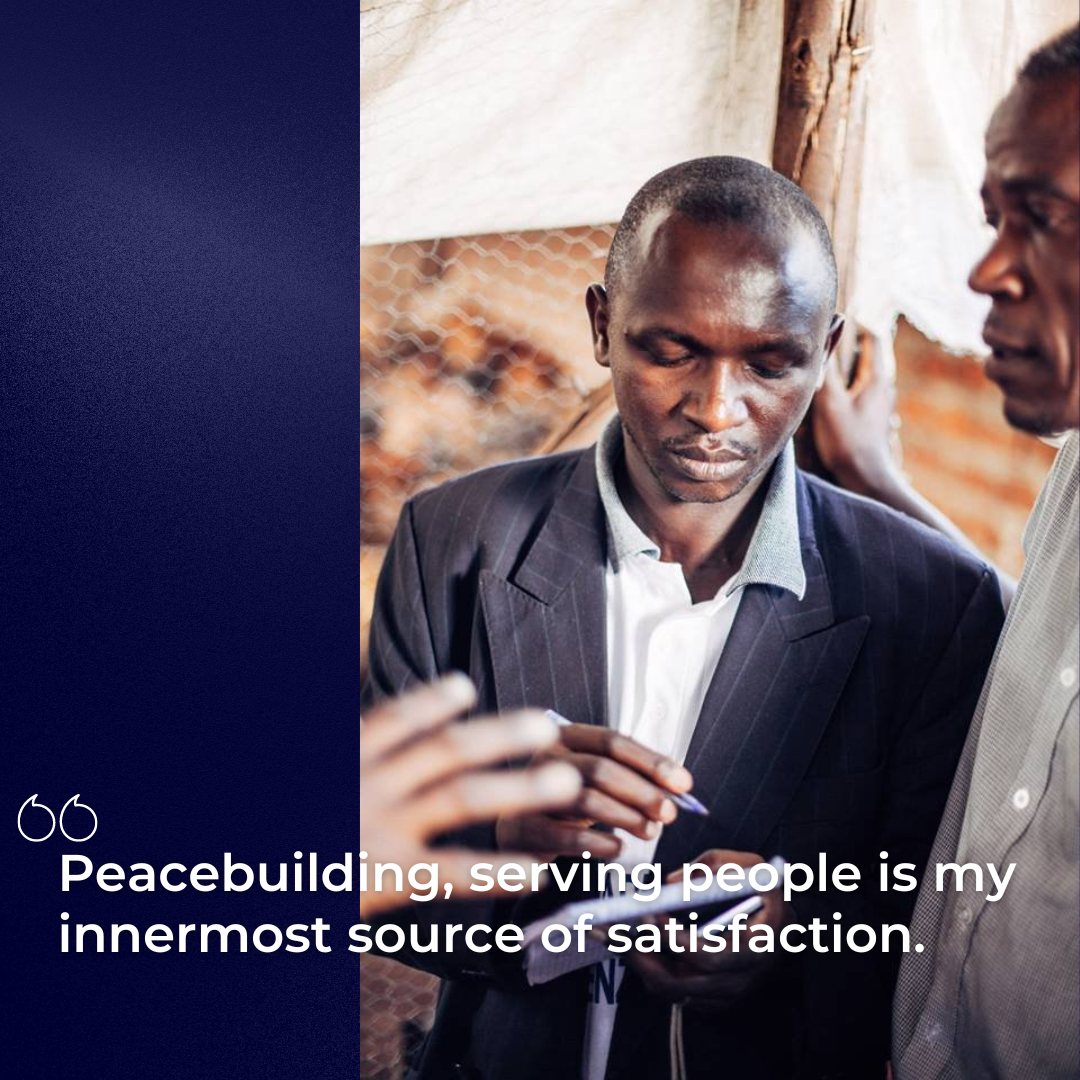In August 2024, our team in the DRC, in partnership with the DRC government, facilitated the release of 18 children from armed groups, including 15 boys and 3 girls.
In June, Innovation in Peacebuilding’s DRC Country Director made a field mission to Lweba, a district in DRC’s South Kivu province, to conduct awareness-raising and advocacy activities with an active militia group. During this visit, the group indicated that there were several children at the camp in Lweba and through negotiations, agreed to release them. From August 3-8, Innovations in Peacebuilding and several DRC government agencies, such as the Disarmament, Demobilization, Community Rehabilitation and Stabilization program (P-DDRC-S), Civic and Patriotic Education and Social Action Department (SECAS) , Social Affairs Division (DIVAS), and Child Protection Agencies (APE), came together to facilitate the release of the children. After going through a verification process with government workers, the children are provided with food, clothing, and transportation to support their return to their communities. In some cases, children are placed with transitional families until permanent families can be located.
This important development signals the continuation of a trend in militia leaders being influenced by advocacy efforts to release children. Additionally, this marks the first time Innovations in Peacebuilding has orchestrated the release of child soldiers and been the key facilitator between the government and the armed group. In previous engagements, we have primarily acted as an advocate for the children and supported their reintegration after rescue.
Who are the 18?
The 15 boys and 3 girls that were rescued in August range from 13 to 17 years old. Each of them would be what we consider a “vulnerable youth,” due to their familial circumstances. Those in this group include children who were separated from their families, orphaned children, or children without care. These circumstances make them especially vulnerable to be targeted by active armed groups looking to recruit youths under the guise of providing them with a home, stability, and protection. Much like gang recruitment in the United States, the children are misled into believing that joining the group is their best pathway to safety.
Demobilized and Forgiven
Now released from armed groups, the 18 children have been issued a demobilization certificate, which certifies that the children will not be charged for any crimes related to their activities within the armed group. Additionally, it signifies forgiveness from the community and reassures that no retaliatory action will be taken against them as they reintegrate into the receiving communities. This is an important part of the reintegration process as this helps to support the mental and emotional healing that the children will begin, in addition to the physical and legal protection it provides.
What’s next?
With support from Innovations in Peacabuilding, these children were transported to host families that will support their transition and reintegration into their communities. In some cases, searches are being conducted for the children’s families in the hope of reunification. As the children settle into their communities, our staff will meet with the children to learn more about their story and how we can support them in gaining access to funding, education, or training for their next stage in life. Some of the children will also be considered for Thierry’s Project, which provides goats to former child soldiers and vulnerable youth as a continued source of income, allowing them to build wealth, independence and, ultimately, freedom. You can find out more about this program and donate a goat by checking out Thierry’s Project on our website.
Did you know that Innovations in Peacebuilding has been working in the DRC for 9 years now?
While you may have heard bits and pieces about our activities, here’s a recap of what’s happened and what we’re working on next:
Why the DRC?
The Democratic Republic of the Congo (DRC) has been facing a complex, intractable civil conflict for almost 30 years. After thousands of refugees fled to the Eastern DRC after the Rwandan Genocide in 1994, conflict erupted between various ethnic and religious factions, resulting in an estimated 6 million casualties due to clashes between the army, militias, armed groups, and foreign actors. UNICEF estimates that more than 800,000 children have been displaced, leaving DRC’s youth vulnerable to violence, disease, and recruitment into armed groups.
About our approach
Despite the many challenges faced by the Congolese, there have been encouraging stories of locals who have worked toward peace. In partnership with its local Congolese team, Innovations in Peacebuilding has led an initiative to build peace in South Kivu, a region particularly afflicted by violence and armed group conflict. Our strategy works to engage all members of society – including government, civil society, and the armed group leaders themselves – to advocate for the release of youth from armed groups as well as the reduction of inter-group fighting. Our team has undertaken a number of activities in the South Kivu region of the DRC in order to reduce civil and armed group conflicts, build social cohesion, and increase sustainable economic growth as a form of long-term peacebuilding.
To date, Innovations in Peacebuilding has:
- Hosted peace talks involving 50+ armed group leaders, as well as a women’s convening for the wives of combatants and women community leaders. These talks were followed by a series of forgiveness events where former fighters were given the opportunity to request forgiveness from community members and return freely to their communities without consequence.
- Provided financial support to more than 150 women and youth in communities affected by violence. We support former child soldiers and other vulnerable youth through Thierry’s Project which provides recipients with goats (a common source of livelihood in Congolese communities). Youth are given pregnant goats, and often use the proceeds from sales of the offspring to pay for school fees and start small businesses such as purchasing a sewing machine to make clothing or opening a hair salon. To date, Innovations in Peacebuilding has donated goats to more than 100 former child soldiers and vulnerable youth. Innovations in Peacebuilding also runs a microlending program to support women in communities affected by violence who are running small businesses to support their families. To date, we have supported 66 women to start or expand businesses such as selling non-perishable food, clothes of all kinds, farming, palm-nut serving to make soap, and more. All these economic activities contribute in livelihood improvement, meeting family needs and stabilizing children from joining life on the street or bush and build their social cohesion.
- Accompanied the release of dozens of children from armed groups by working with our local partners and the Congolese government to advocate to militia leaders to release youth and then accompany youth as they exit groups by providing transportation, food, and clothing as they return to their communities. Importantly, these militia leaders are not compensated in any form for the release of children and are proving to be influenced by Innovations in Peacebuilding’s advocacy efforts and aims to build trust.




